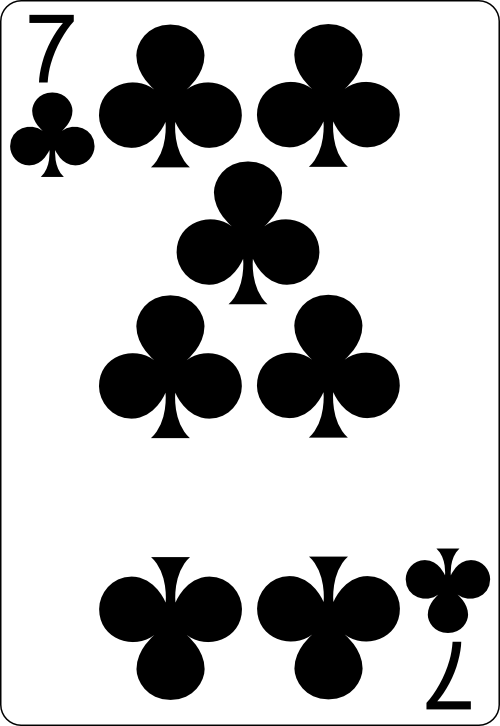Online Poker: A World of Strategy
Online poker is a game that combines skill, strategy, and a bit of luck. While the rules of poker are relatively straightforward, developing a winning online poker strategy requires a deep understanding of the game’s intricacies.
Understanding the Basics of Online Poker
Online poker, much like its traditional counterpart, involves betting and individual play, where the winner of each hand is determined by their card combinations. However, it’s the digital nature of online poker that sets it apart. Online poker allows for multiple games at once, speedier rounds, and the utilization of advanced software tools. For a detailed guide on the basics, refer to our article on how to play online poker.
There are different types of online poker games available, each with its own set of rules and strategies. These include cash games, tournaments, freerolls, and more. Understanding the basics of each game type is crucial in formulating your online poker strategy. Check out our articles on online poker cash games, online poker tournaments, and online poker freerolls to learn more.
The Importance of Strategy in Online Poker
Implementing a strong online poker strategy is crucial for success. With a strategy, players can make informed decisions, maximize their winnings, and minimize their losses. A well-rounded poker strategy considers various facets of the game, from understanding the strength of starting hands to effectively managing your poker bankroll.
The key to a successful online poker strategy lies in understanding the mechanics of the game, analyzing opponents’ behaviors, and constantly learning and adapting your game. Remember, even the most seasoned players continuously refine their strategies to stay competitive.
Developing an effective online poker strategy doesn’t happen overnight. It requires practice, patience, and a keen understanding of the game’s nuances. But with perseverance and a willingness to learn, anyone can master the art of online poker strategy. For more insights into strategic play, explore our articles on online poker rules, online poker software, and online poker etiquette.
Building a Solid Poker Strategy
Creating a robust online poker strategy can be the key to achieving consistent wins. This process involves several elements, including starting hand selection, positional play, and bankroll management.
Starting Hand Selection
Choosing the right starting hands is a foundational aspect of a strong online poker strategy. It’s about understanding the strength of your two-hole cards within the context of the game you’re playing.
For example, a pair of Aces is typically a strong starting hand, while a 7 and 2 off-suit is usually considered weak. It’s important to remember that the strength of your starting hand can change as the game progresses and more cards are revealed.
Check out our article on how to play online poker for more insights on starting hand selection.
| Hand | Strength |
|---|---|
| Pair of Aces | Strong |
 A♦️ |  A♠️ |
| Hand | Strength |
|---|---|
| King and Queen suited | Strong |
 K♥️ |  Q♥️ |
| Hand | Strength |
|---|---|
| 7 and 2 off-suit | Weak |
 7♣️ |  2♠️ |
Positional Play
Positional play refers to how your position at the table affects your strategy. Players who act later in the round (closer to the dealer) have a positional advantage because they have more information about their opponents’ actions.
A smart online poker strategy often involves playing more hands when in a ‘late’ position and fewer hands when in an ‘early’ position. This approach allows players to make more informed decisions and potentially capitalize on their opponents’ weaknesses.
Find more tips on positional play in our guide to online poker tournaments.
Bankroll Management
Bankroll management is a critical aspect of any successful online poker strategy. It involves managing your poker money responsibly to withstand losses and continue playing over the long term.
Good bankroll management dictates that you should only risk a small percentage of your bankroll on any single game or tournament. This helps ensure that a single loss doesn’t significantly impact your overall bankroll.
For more insights on managing your poker finances, visit our article on online poker cash games.
| Game Type | % of Bankroll to Risk |
|---|---|
| Cash Game | 1-2% |
| Tournament | 2-3% |
Building a solid poker strategy involves understanding these core concepts and implementing them effectively. As you gain experience and confidence, you can start to explore more advanced strategies to further enhance your game.
Advanced Poker Strategies
Taking your online poker strategy to the next level requires an understanding of advanced concepts such as bluffing, pot odds, and player reads. These strategies are designed to give you an edge over your opponents and increase your chances of winning.
Bluffing and Semi-Bluffing
One of the most potent weapons in a poker player’s arsenal is bluffing. By making your opponents believe you have a stronger hand than you actually do, you can manipulate the course of the game and often win pots even with weaker hands.
Semi-bluffing is a variation of this tactic where you might not have the best hand at the moment, but you still have a chance to improve it on the upcoming cards. This strategy adds an extra layer of security to your bluff, as you can still win the pot even if your bluff is called.
Bluffing requires a good understanding of your opponents and the game situation. It should be used sparingly and strategically, as excessive bluffing can lead to a loss of credibility at the poker table.
Understanding Pot Odds and Equity
Pot odds represent the relationship between the current size of the pot and the cost of a contemplated call. They are used to determine whether a call is profitable in the long run. To calculate pot odds, you compare the total amount of money in the pot to the amount you have to put in to continue playing.
Equity, on the other hand, is your chance of winning the pot at any given point in the hand. By understanding your equity, you can make more informed decisions about whether to bet, call, raise, or fold.
The goal is to make decisions that offer a positive expected value, which means the potential return outweighs the risk. For more on this, check out our article on how to play online poker.
Player Types and Reads
Understanding the different types of players can give you a significant advantage in online poker.
- Loose players play a wide range of hands, often beyond the traditional good starting hands.
- Tight players stick to premium hands and fold often.
- Aggressive players bet and raise frequently, putting pressure on their opponents.
- Passive players tend to call and check, avoiding confrontation.
By identifying these player types, you can adjust your strategy accordingly to exploit their tendencies. For example, against a loose player, you might want to play more conservatively and wait for strong hands, knowing they are likely to pay you off. Against a tight player, you might try to steal the blinds more often, knowing they are likely to fold.
In addition, paying attention to your opponents’ tendencies can provide valuable “reads” or clues about their hands based on how they have played in the past. This information can help guide your decisions and give you an edge over less observant players.
Mastering these advanced strategies is key to becoming a formidable online poker player. Remember, continual learning and improvement is the cornerstone of any effective poker strategy. Keep honing your skills, analyzing your play, and seeking out resources to stay ahead of the competition.
Special Considerations for Online Poker
While the basic principles of poker strategy apply universally, there are certain factors unique to online play that can significantly impact your game. Developing an effective online poker strategy involves understanding and addressing these special considerations, which include multi-tabling strategies, dealing with variance, and leveraging software tools.
Multi-Tabling Strategies
One of the primary advantages of online poker is the ability to play multiple tables simultaneously. This approach, known as multi-tabling, allows players to increase their volume of play and potentially maximize their earnings. However, multi-tabling requires excellent focus and quick decision-making skills, as you’ll need to manage multiple hands at once.
To start with multi-tabling, begin by adding one table at a time to your play. Pay attention to how the additional table impacts your decision-making process and overall performance. If you can handle the extra table without compromising the quality of your play, consider adding another.
Keep in mind that multi-tabling is not suitable for everyone. Some players may find that the increased volume of play leads to burnout or decreased performance. It’s essential to find a balance that suits your individual play style and capabilities.
Dealing with Variance
Variance, or the ups and downs inherent in poker, can be particularly challenging in the online environment. The high volume of hands played online can result in significant swings, both positive and negative.
To manage variance effectively, it’s crucial to maintain a healthy poker bankroll. This means having enough money to withstand the swings without going broke. A common recommendation is to have at least 20 buy-ins for cash games and 100 buy-ins for tournaments.
In addition, it’s important to not let the swings affect your mental game. Stay focused on making the best decisions possible, regardless of the results. Over the long term, good decision-making will lead to profitability.
Leveraging Software Tools
Online poker offers a range of software tools that can help you improve your game and gain an edge over your opponents. These tools can provide valuable insights into your own play as well as your opponents, helping you to identify strengths and weaknesses and make more informed decisions.
Some common types of poker software include tracking software, which records your hand histories for review, and HUDs (Heads-Up Displays), which display statistical data on your opponents in real-time.
Before using any poker software, it’s important to check the rules of your chosen online poker site to ensure that the tool is allowed. Some sites have strict rules regarding the use of third-party software, so it’s essential to stay informed and avoid any potential penalties.
As you continue to refine your online poker strategy, remember that the key to success in poker is continual learning and improvement. Be sure to review your hand histories, learn from your mistakes, and seek out resources and communities that can help you grow as a player. For more on how to play online poker effectively, check out our guides on online poker rules, online poker tournaments, and online poker cash games.
Improving Your Poker Strategy
Mastering the game of poker is a continuous journey. To keep up with the ever-evolving dynamics of the game, it’s essential to focus on continual learning and improvement, analyzing hand histories, and seeking out resources and communities.
Continual Learning and Improvement
The world of online poker is ever-changing. New strategies and tactics are continually emerging, and the most successful players are those who are able to adapt and evolve their playing style to keep up with these changes. To sharpen your online poker strategy, it’s crucial to embrace a mindset of never-ending learning.
Playing a variety of poker games, from online poker cash games to online poker tournaments, can help broaden your understanding of different strategies. Additionally, participating in online poker freerolls can offer a risk-free platform for trying out new tactics and learning from mistakes.
Analyzing Hand Histories
Analyzing your hand history is a powerful way of improving your online poker strategy. It involves reviewing the hands you’ve played in past games, identifying your strengths and weaknesses, and adjusting your strategy accordingly. This practice can provide invaluable insights into your decision-making process and help you understand why certain plays led to success or failure.
To analyze your hand histories effectively, you might find it helpful to use online poker software tools. These tools can automatically track and record your hands, making it easier to review and analyze your play.
Seeking Out Resources and Communities
Another critical aspect of improving your poker strategy is tapping into the wealth of knowledge available online. From instructional articles on how to play online poker to forums where players discuss online poker rules and strategies, there’s a plethora of resources available to help you improve your game.
Joining online poker communities can also provide opportunities to learn from experienced players, get feedback on your playing style, and keep up-to-date with the latest trends and developments in the game. It’s also a great way to make sure you’re playing within the boundaries of online poker etiquette.
By focusing on continual learning, analyzing hand histories, and seeking out resources and communities, you can continually refine your poker strategy and enhance your performance at the online poker table.

